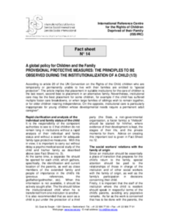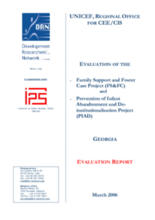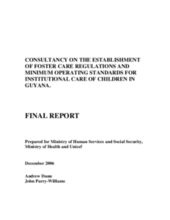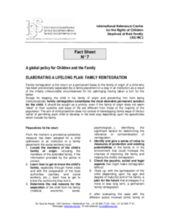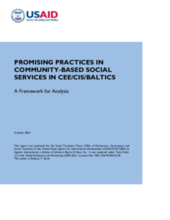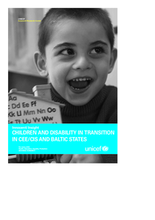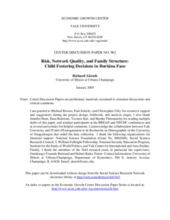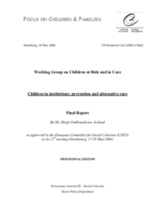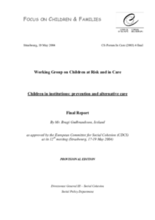Displaying 171 - 180 of 191
A brief 2-page overview of what steps should be taken if and when a social worker or other community worker admits a child to a residential institution.
Evaluation of two alternative care programmes in Georgia. Focus on contributions towards the construction of gatekeeping systems for alternative care services. Includes detailed lessons learned and recommendations.
Detailed guidelines for the establishment of the Child Protection Service (CPS), designed to address the lack of regulations concerning standards in children’s institutions and the lack of departmental policy and procedures for assessing and assisting abused and at-risk children. Includes comprehensive set of CPS forms in 14 annexes.
A brief fact sheet on family reintegration. Provides an overview of what a social worker should pay attention to when assessing a child's situation.
Provides a framework for analysis of community-based social welfare services and linkages with government structures. Includes analysis of alternative care provision, de-institutionalization, programming for children with disabilities, standards of care, and overall social welfare sector reform.
Report presents and analyzes new research and data around children with disabilities in the region, the effects of institutional care, and the need for family support services.
Serves as an example of fostering service standards from the perspective of children, birth families, and foster caregivers
Analyzes household decisions to send and receive children via fostering. Results show fostering used as a social protection mechanism to cope with income shock (sending) and address family labor shortages (receiving).
A comparative analysis of protection and care systems across Europe, focusing on the use of institutions, alternative forms of care placements, family support services, and the role of social workers in the process of child placement.
This report contains an overview of alternative care in Europe, the effects of institutions on children, statistical information and the different approaches of child protection systems within Europe. It includes reforming institutional care, foster care, post-care support, and the role of the social worker.

